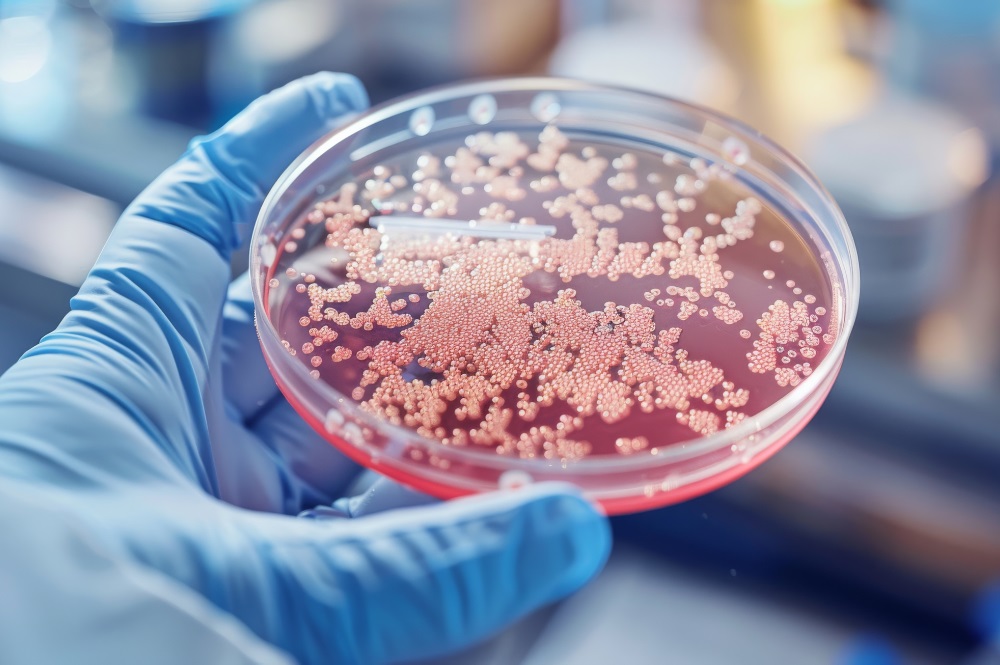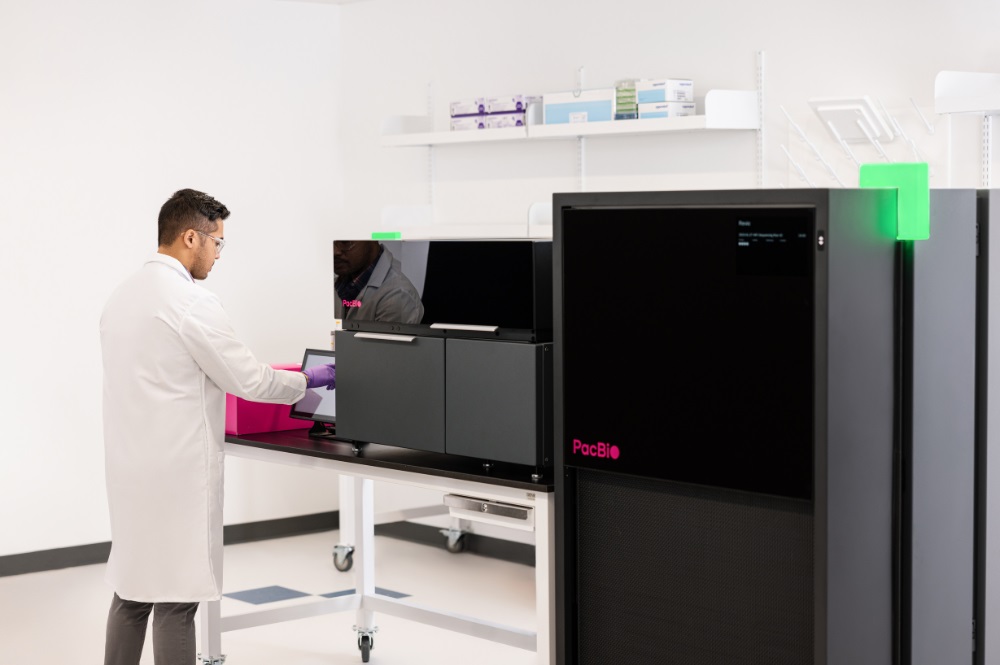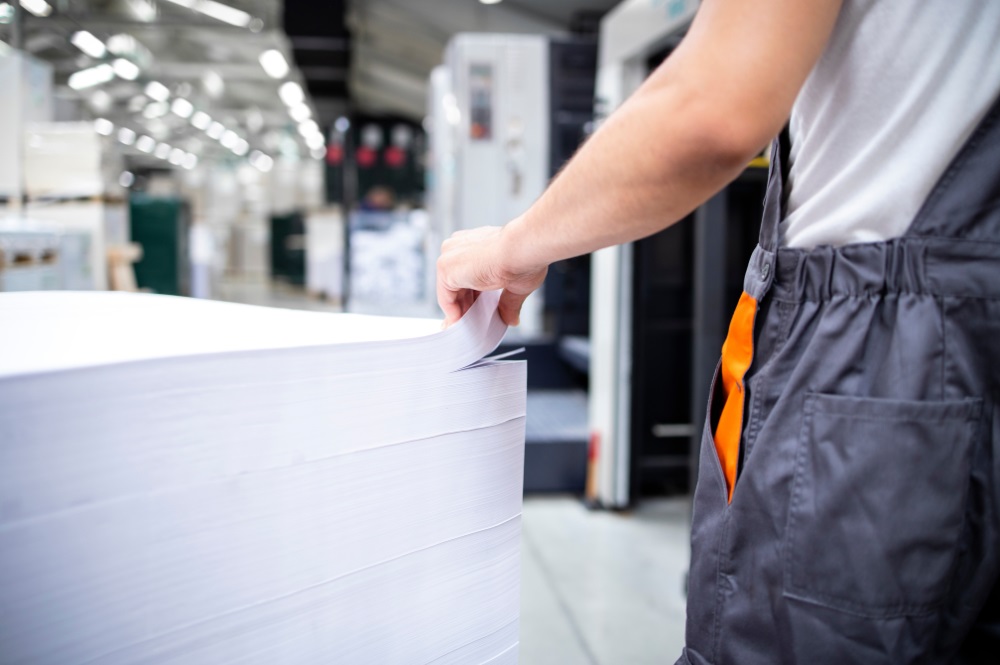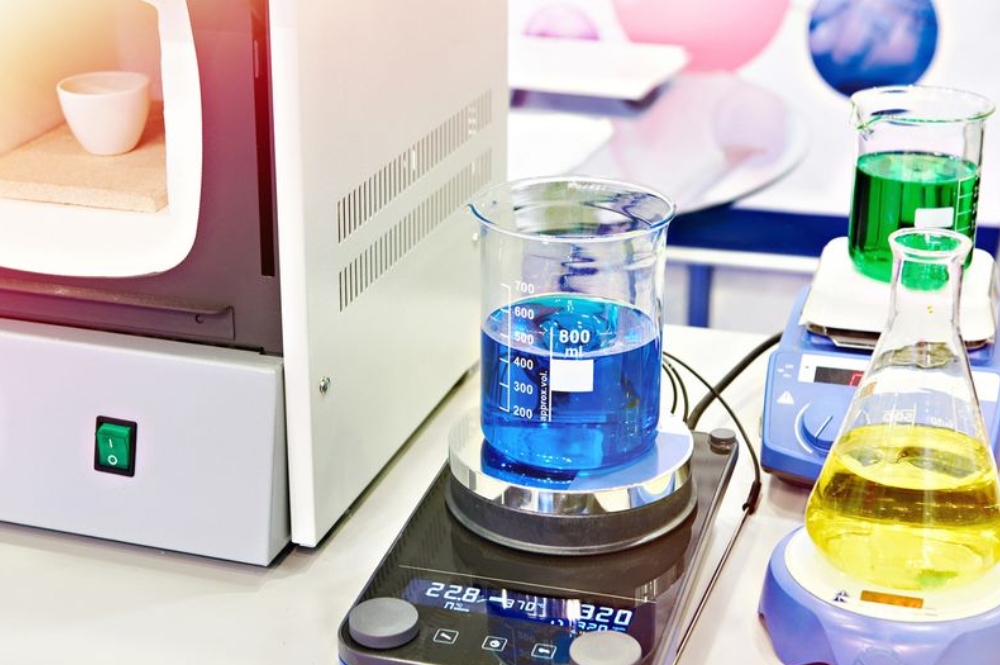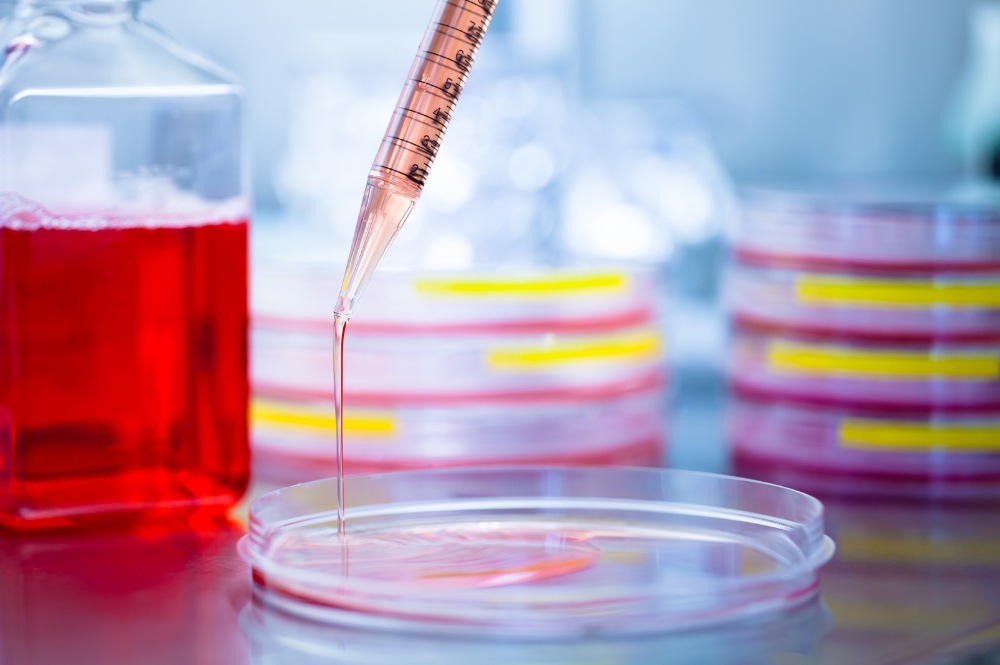These preservatives help maintain the stability and efficacy of pharmaceutical products throughout their shelf life and during use, particularly for products that may be repeatedly exposed to potential contaminants. The USP <51> Antimicrobial Effectiveness Test (AET) is an essential tool in this context, providing a standardized method to evaluate the effectiveness of antimicrobial preservatives in pharmaceutical formulations.
Understanding the USP <51> Antimicrobial Effectiveness Test
The USP <51> Antimicrobial Effectiveness Test is a protocol designed to test the effectiveness of antimicrobial compounds in non-sterile, aqueous pharmaceutical products with a water activity (Aw) of ≥0.6. This type of testing ensures that the antimicrobial compounds present in the product can inhibit the growth of microorganisms that may be introduced during or after the manufacturing process.
Microorganisms can be introduced to these products in various ways, such as reusing a container that requires multiple openings. Even just-washed hands aren't sterile, so microbes will inevitably be introduced. This test proves that the antimicrobial compounds can inhibit those microbes over a specified period.
The procedure involves inoculating the product with specific strains of bacteria, yeast, and mold recommended by USP and monitoring the reduction in microbial count at designated intervals of 0, 1, 7, 14, and 28 days.
USP has categorized non-sterile aqueous products into four categories tested at different intervals and must meet slightly different criteria for antimicrobial effectiveness testing. The four categories are summarized in the table below:

The four categories indicated above have unique requirements for the antimicrobials to be considered effective.
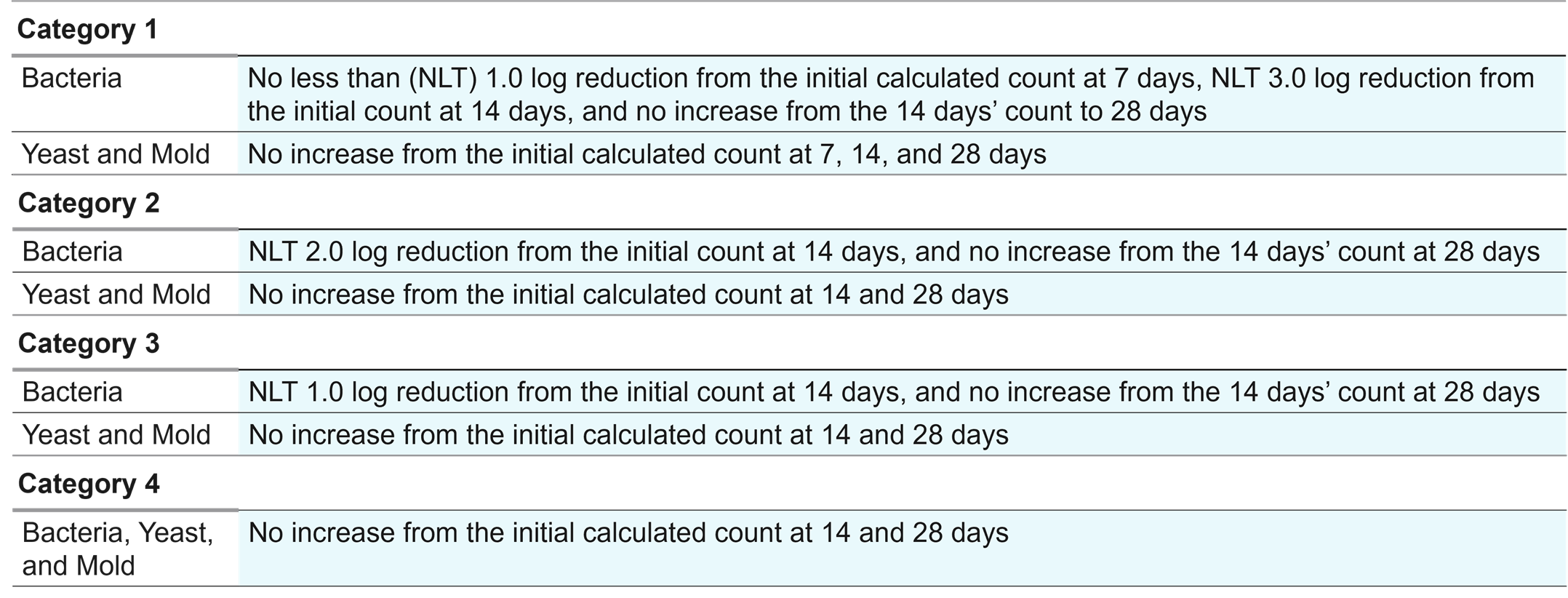
Knowing the Water Activity of Products
Products with a water activity (Aw) of ≥0.6 are susceptible to microbial contamination and require preservative efficacy testing under USP <51>. This threshold is established because most bacteria, yeasts, and molds can grow at this water activity level, making preservatives necessary to inhibit microbial growth.
To ensure compliance with USP <51> standards, manufacturers must utilize water activity meters to accurately measure and control water activity in their products. This process is crucial to help manufacturers meet regulatory requirements and maintain the integrity and safety of their products throughout their shelf life.
Ensuring Compliance and Product Integrity
Compliance with regulatory standards like USP <51> is not just a legal requirement; it is essential for safeguarding consumer health and maintaining brand reputation. The antimicrobial effectiveness and challenge tests provide a scientific basis for using preservatives, ensuring that products remain safe for use over their intended shelf life.
Manufacturers must carefully select preservatives based on the product's formulation, intended use, and storage conditions. Additionally, ongoing stability testing is essential to verify that the preservative system remains effective throughout the product's shelf life.
In conclusion, the USP <51> Antimicrobial Effectiveness Test and related challenge tests are vital tools in the pharmaceutical industry. These tests ensure that non-sterile aqueous pharmaceutical products are protected against microbial contamination, thereby safeguarding consumer health and maintaining product efficacy and integrity.
As pharmaceutical products often have prolonged shelf lives and are exposed to various potential contaminants, rigorous antimicrobial effectiveness testing is crucial. Adhering to USP <51> standards helps pharmaceutical companies meet regulatory requirements and maintain high-quality standards, ultimately contributing to the trust and safety of healthcare products.
By focusing on these aspects, pharmaceutical companies can ensure that their products remain safe, effective, and reliable throughout their intended use.





